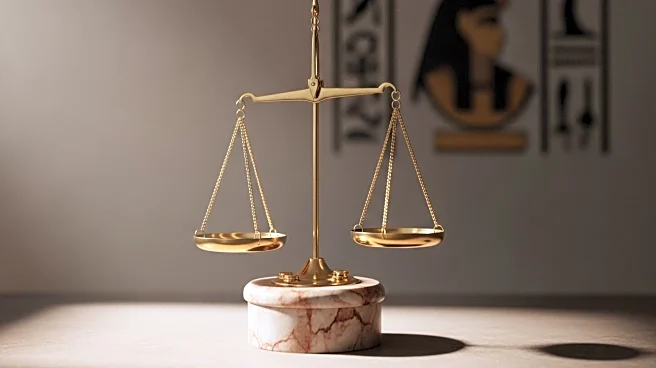What's Happening?
Egyptian President Abdel Fattah al-Sisi has initiated a study into the potential pardon of Alaa Abd el-Fattah, a prominent activist and blogger. Abd el-Fattah, who has been imprisoned for most of the past decade, gained prominence during the Arab Spring uprising in 2011. He has been on a hunger strike since March 1, protesting his imprisonment and the broader crackdown on dissent in Egypt. Abd el-Fattah was sentenced to five years in prison in December 2021 for sharing a social media post about a prisoner's death. His name was recently removed from Egypt's terrorism list, prompting him to shift to a partial hunger strike.
Why It's Important?
The potential pardon of Alaa Abd el-Fattah could signal a shift in Egypt's approach to political dissent and human rights. Abd el-Fattah's case has drawn international attention, highlighting issues of freedom of expression and political repression in Egypt. A pardon could improve Egypt's international image and relations, particularly with Western countries concerned about human rights. It may also impact domestic politics by easing tensions between the government and opposition groups, potentially leading to more open political discourse.
What's Next?
If the study leads to a pardon, it could set a precedent for the release of other political prisoners in Egypt. The decision may also influence Egypt's political landscape, affecting the government's relationship with opposition groups and activists. International reactions, particularly from human rights organizations and foreign governments, could play a role in shaping the outcome of this decision.











